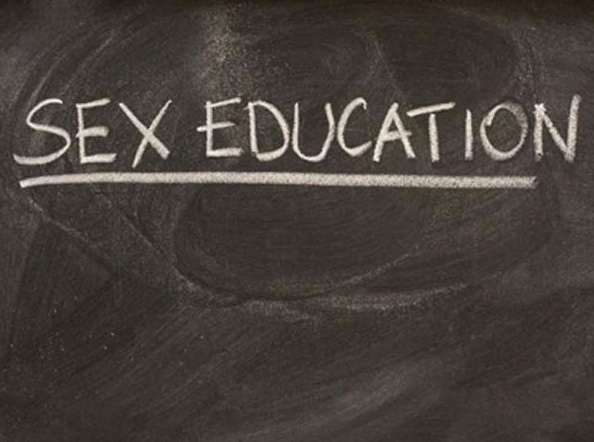Hair on Your Front Bottom


Image source
Deanne Carson talks with year six students about puberty, genitals and bananas.
‘Can anyone tell me some of the changes boys and girls go through during puberty?’ I ask the year six class. I am a sexuality educator and travel around Melbourne talking to children from year one through to year nine about bodies, babies, families and puberty.
A girl raises her hand.
‘We get hair,’ she says.
‘That’s true,’ I reply. ‘We get hair in several places during puberty. Can you tell me where?’
Nervous laughter ripples through the room.
‘Down … there,’ she says.
We have already named the different body parts; have spoken out loud the words penis, testicles, vulva and vagina as well as the lesser known scrotum and fallopian tubes.
‘Can anyone tell me where ‘down there’ is?’ I ask.
‘Your vajajay,’ one girl calls. ‘Your willy,’ chimes in a boy and now they are one a roll and I allow it. They are telling me the names they have been given for genitals. They start with the cute ones they were taught as toddlers and move onto playground slang. I stop them before they get to a word starting with C. In the silence a final girl calls, ‘on your front bottom.’ And again they dissolve into giggles.
I tell them a story.
‘There once was a boy,’ I start, ‘who had a sore penis. He went to the doctor and the doctor asked him what was wrong.
“I have a sore banana,” said the boy. The doctor looked at the boy quizzically. The boy wasn’t holding a banana and why would a boy see a doctor about a banana, anyway?
“I am a doctor,” the doctor said. “I cure people, not fruit. I can’t help you.”
The boy wanted to tell the doctor where his banana was, but the doctor was already showing him to the door, so the boy left without having his sore penis treated.’
The students think about this for a while, then the first girl says, ‘Girls get hair on their vulva.’
Nobody laughs, nobody points – and the class moves on.
What these primary aged children don’t yet know is that being able to comfortably name their body parts and discuss them with trusted peers and adults will positively impact in their futures. The Victorian Department of Education asserts that, ‘Children whose parents discuss values and attitudes towards sexuality and who receive good sexuality education at school are more likely to start sex later and less likely to have an unplanned pregnancy or a sexually transmissible infection.’
Young people who are able to accurately and comfortably talk about their bodies, are more able to negotiate positive intimate relationships – and if something does go wrong, they are more likely to seek help than someone who is uncomfortable or unfamiliar with their own body.
Feeling comfortable naming and discussing body parts can not only set young people up for healthier sexual relationships later in life, it can also be an important part of protecting children from sexual assault.
Author of Some Secrets Should Never Be Kept, Jayneen Sanders agrees. ‘It is crucial we teach our children the correct name for their body parts. A few years ago, a young girl bravely disclosed to her teacher: “My uncle touched my cookie”. Suffice to say, the teacher took no notice and that child didn’t disclosed again. If the child had said “My uncle touched my vagina”, the teacher’s reaction and the outcome for the child would have been vastly different.’
This grade six class isn’t worrying about sex or abuse, they are simply enjoying a break from maths and are looking forward to a game at the end of our session. Although some have felt a little uncomfortable, many tell me that they feel more confident about managing the changes puberty will bring and their ability to talk with their parents.
‘I really appreciate you coming,’ says an anonymous note in my question box. ‘It has made me more comfortable and I feel OK now to talk to my Mum about puberty and stuff.’
Deanne Carson is co-author of Single but not alone and her latest book, What’s a French Kiss: answering questions your preteen asks about puberty, sex and sexuality will be released in late 2013.










